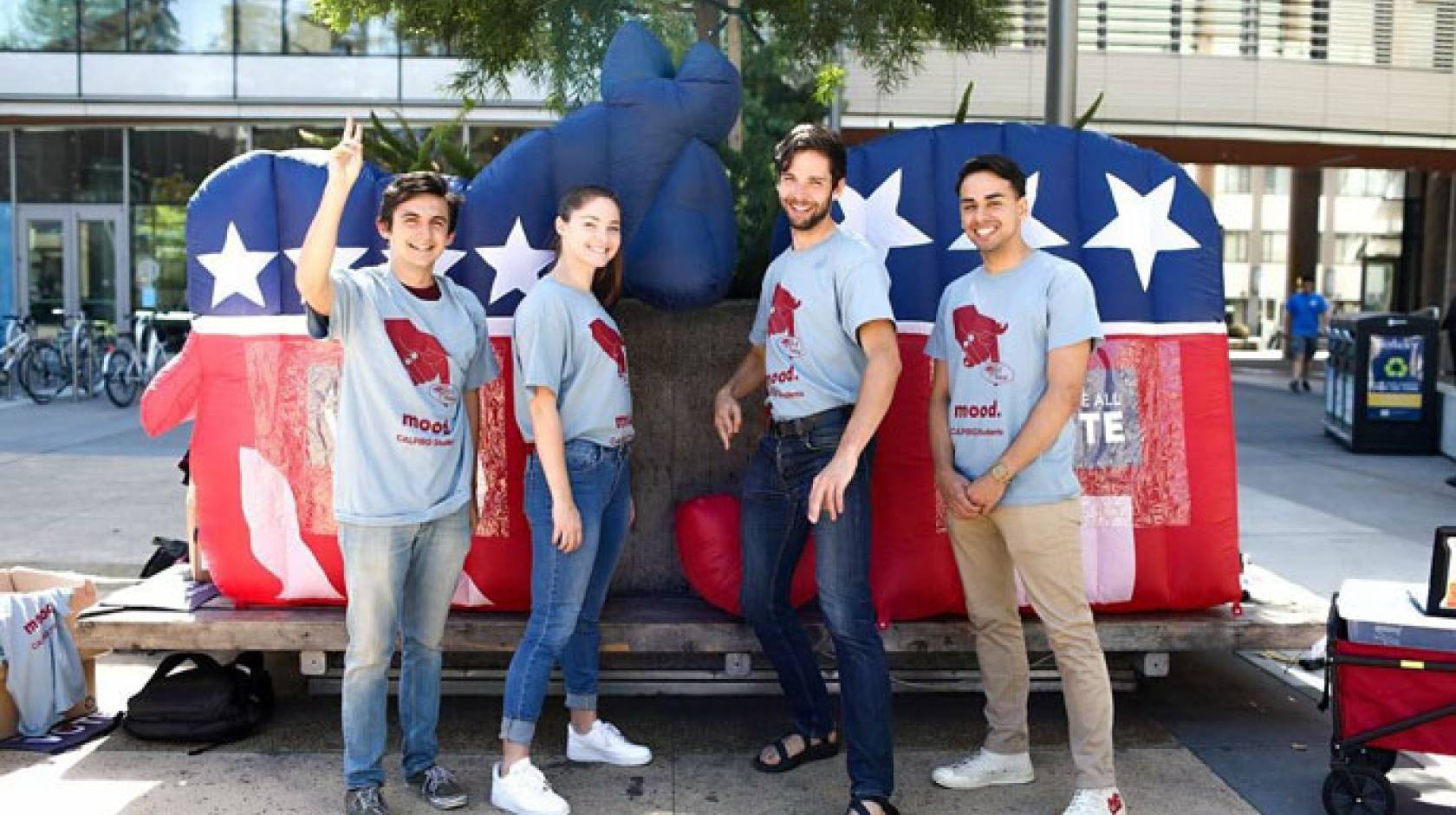Nicole Freeling, UC Newsroom

The presidential race may be dominating the news cycle, but on March 3, primary voters will also weigh in on issues that hit much closer to home, from term limits for local officials to bond measures for schools and infrastructure.
“Students have definitely been surprised to learn there are things they can vote on that affect them directly,” said political science major Samantha Warren, a member of UC Berkeley’s Vote Coalition, a nonpartisan organization working to get students to the polls. “These are propositions with tangible impacts on issues we witness every day — and we get to vote on them."
Unless they involve legal pot or gay marriage, ballot measures rarely grab the headlines. But they are one place where voters have an immediate say on issues that affect their daily lives. It’s simple: The side with the most votes wins — no Congress, caucuses or Electoral College to worry about.
That’s a great thing when it comes to direct democracy. But it can be daunting to new voters — especially busy college students with stacks of composition and calculus to contend with.
Fear not, says UC Student Association President Varsha Sarveshwar. A few minutes of research is often enough to make an informed choice on an issue. And resources abound — from nonpartisan resource guides to slates of endorsements from parties and interest groups — to help you bone up on the candidates and issues.
“No one who is going into that voting booth is any more of an expert than you are,” said Sarveshwar. “Young people aren’t any less informed than older voters, and our perspectives and our voices are just as important.”
Here are some tips for getting up to speed.
Find out who and what is on the ballot
If you registered in California, you received a voter guide and sample ballot in the mail. It details state measures, along with arguments, organizations and major donors supporting each side.
Voter’s Edge is another nonpartisan resource that lists local measures in California. If offers a feature “for new and busy voters” that provides simple, succinct summaries for each race.
Voters in any state can look up local ballot measures using the Ballotpedia lookup tool.
The League of Women Voters Vote411 provides nonpartisan tips on navigating the ballot as a first-time voter.
See who is promoting — and opposing — each measure
California in particular is infamous for having scores of voter initiatives, sometimes with titles that can make it hard to suss out what the measures will really do.
One way to cut through the confusion: look closely at the organizations and funders backing each side. Is there a group pushing the legislation that has a financial stake in the outcome? What are the policy goals of the groups supporting or standing against the measure?
These, together with third-party endorsements, can offer a clue to a measure’s intent. And help you decide how you want to vote.
Seek out endorsements from organizations that share your views
See what your local newspaper has to say, and what measures and candidates it endorses. Check out the slate of candidates and issues endorsed by the local chapters of political parties and advocacy organizations that you support.
And don’t be afraid to listen to your classmates, including the many UC student organizations that are tabling, hosting forums and developing voter guides. “There are students out there who have done the research to get educated on the issues and who are willing and able to share that knowledge,” Warren said.

Courtesy photo
Talk over the issues with your friends
Discuss the issues with friends and family. And make it social: Invite friends to share pizza and discuss the candidates and go over the ballot measures. See if local clubs and cafes are hosting discussions for talking through what’s on the ballot.
“Everyone in my family votes by mail, and we have a tradition of bringing our ballots to lunch,” Sarveshwar said. “Often we all vote different ways, but it’s a fun way to share our knowledge and talk through our ideas.”
Don’t sweat it, just vote
Don’t skip voting if you haven’t made up your mind on every issue. Just vote on the issues you know and care about, and omit those that you truly know nothing about, urges Sarveshwar.
“No one is an expert on everything, and whatever knowledge you’ve got, your perspective matters.”

